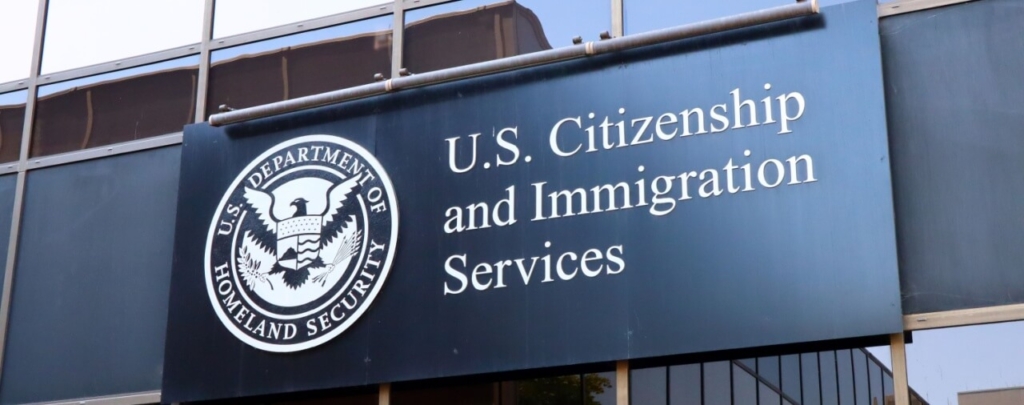Introduction: Overview of the Debate
While the first Presidential debate between Hillary Clinton and Donald Trump produced nothing of substance on immigration issues [see blog], the Vice Presidential debate between the Democratic nominee for Vice President, U.S. Senator Tim Kaine of Virginia [see blog], and his Republican counterpart, Governor Mike Pence of Indiana [see blog], produced an interesting exchange on immigration that I will cover in this blog.
Before parsing the debate’s major immigration exchange, I will offer my opinion that Mike Pence emerged from the debate as the winner. In this porta-potty fire of an election season [see blog], it was heartening to see someone make a measured and coherent case for bedrock conservative principles before a national audience for 90 minutes. I will certainly grant that Pence often looked ridiculous in denying that Trump had said things that he plainly said in front of a camera. However, Pence had the difficult choice of either spending the debate endeavoring to defend every one of Trump’s often strange utterances, or focusing his attention on making a compelling case for conservative ideas and forcing Kaine to account for the dangerously misguided policies that his ticket is advocating. Pence chose the latter path, and he chose correctly.
On a non-immigration note, Pence deserves special credit for making a solid case against the Iran nuclear deal, and challenging Kaine’s absurd suggestion that it has ended the nuclear ambitions of the world’s leading state sponsor of terrorism. It was also good to see Pence highlight Kaine’s inexcusable decision to boycott Israeli Prime Minister Benjamin Netanyahu’s speech against the Iran Nuclear Deal before a joint session of Congress in 2015. Had Pence not done so, it is likely many voters would have never known that Clinton picked a running mate who put defending the hurt feelings of the administration over showing respect for the leader of America’s foremost ally and hearing an important case against a dangerous agreement.
Exchange on Immigration
In the following sections, I will examine the candidate’s exchanges on a variety of immigration issues, sorted by categories.1 Please follow the links I provide to read about my thoughts on the subjects more in-depth.
Enforcement and Reform
The exchange on immigration began when the moderator, Elaine Quijano, asked Mike Pence what he would tell the millions of undocumented immigrants who have not committed violent crimes. The clear implication in the question regarded Trump’s statements that he would seek to deport every person who is in the United States without authorization.
Pence began his answer by attacking Clinton and Kaine for advocating policies such as “open borders, amnesty, catch and release, and sanctuary cities.” To this effect, Pence is correct that the Clinton-Kaine ticket proposes policies that would not be conducive to the effective enforcement of our immigration laws. However, Pence then erred in making the central point of his argument against the immigration policies of Clinton-Kaine that they are “driving down wages.” The evidence that lax immigration policies drive down wages, in general, is sparse. While it certainly may be the case in certain sectors of the economy, the main reason for having a coherent system of immigration laws is to (1) encourage people who can benefit the United States economy and society to immigrate; and (2) protect the security and interests of the United States. While ensuring that immigration does not harm the American workforce is a priority, Pence painted with too broad of a brush, centering his argument too much on one point out of many.
Pence then pivoted to offering generic platitudes in defense of Trump’s immigration policies. Pence described Trump’s immigration speech in Arizona as laying out a plan “that will systemically deal with illegal immigration, beginning with border security, internal enforcement.” As I explained in my blog about the speech [see blog], the best that can be said of it is that it was an improvement over some of Trump’s earlier and even more inconsistent “proposals” [see blog]. Pence claimed that Trump would prioritize the deportation of criminal aliens and those who have overstayed their visas, but the truth is that it is not entirely clear whether Trump thinks that we should have enforcement priorities or what they would actually be (he has stated that we should have enforcement priorities but has also stated that we should target everyone who is here illegally, seemingly without prioritization).
Kaine stated that he and Clinton “believe in comprehensive immigration reform.” In an interesting point, Kaine listed the goals of this “comprehensive immigration reform” advocated by the Democratic ticket:
1. Keep families together;
2. Focus enforcement on those who are violent;
3. “Do more border control”; and
4. Provide a path to citizenship for those “who work hard, pay taxes, and play by the rules and take criminal background record checks.”
I discuss the follies of the Clinton-Kaine approach in my blog regarding how to handle those who are currently in the United States illegally [see blog]. The issue is that while some of the goals of their comprehensive immigration reform sound appealing, enforcement is far less of a priority than Kaine allows in the second and third points. The top priority for Clinton-Kaine is to create a legalization program with guaranteed benefits for many who are here illegally. Pence called Kaine on this point when he alleged that the main thrust of calls for “comprehensive immigration reform” in Washington DC is often to create provisions for “amnesty.” For Clinton-Kaine, enforcement is a secondary priority, and they intend to ask Congress to pass new enforcement legislation that is not guaranteed to yield results in conjunction with a legalization program that cannot be reversed once it takes effect. In my blog, I use the example of the ill-fated 1986 comprehensive immigration reform law, which included a legalization program along with new enforcement measures, to explain why we must prioritize enforcement and improvements to the immigration first and legalization only after we see positive results on the first two points [see blog]. Interestingly, Kaine specifically defended his ticket’s proposal by stating that, “Our plan is like Ronald Reagan’s plan from 1986.” President Reagan was one of our country’s great Presidents, and in most cases, having a proposal that mirrors one of Reagan’s is a credit to the proposal. However, Reagan was no more correct on every decision than any other great President was. With regard to comprehensive immigration reform, we should endeavor to learn from President Reagan’s undoubtedly well-intentioned mistake rather than to repeat it.
Birthright Citizenship
While Kaine’s calls for comprehensive immigration reform fell flat, he did land an effective attack on the Trump-Pence ticket when he highlighted their support for ending birthright citizenship. I have explained on site that the Constitution clearly provides for birthright citizenship, and that this is not something that we should change [see blog]. On birthright citizenship, my views align with Clinton-Kaine. However, Kaine undercut his own point by suggesting that Trump would deport people who are born to “undocumented” parents in addition to everyone who are actually here illegally. While the Trump-Pence opinion on birthright citizenship is misguided, I explained in my blog why there is no conceivable scenario under which they would be able to change the law on that issue.
Deportation Priorities
When pressed on Trump’s statements that he would create a deportation force to deport every person who is here illegally, Pence opted to deny that Trump had ever said such a thing. This is certainly not true, as Trump has at times, even in his recent major immigration speech, advocated for an ill-defined deportation force. Pence was perhaps even less effective when he tried to answer Kaine’s question regarding the disposition of those who are here illegally who do not leave the United States voluntarily. First, Pence referenced a wall “beneath the ground and in the air.” It cannot be said enough that the proposals for a “wall” are impractical financially and logistically. This so-called “proposal” is nothing than empty rhetoric taking the place of coherent enforcement ideas. Pence then focused on enforcement as a way to protect the American population from criminal aliens. While this is important, the importance of immigration enforcement extends well beyond those who commit crimes, although they should certainly be the highest enforcement priorities.
Trump’s Statements
After this exchange, Kaine attacked Trump’s specific characterizations of Mexicans as “rapists and criminals,” as well as Trump’s indefensible attacks against an American-born Mexican-American judge. The irony of Trump’s broad outrageous statements on Mexicans and Mexican-Americans is that while they endear him to many of his core supporters, they likely have the effect of shifting the overall national mood on immigration to the left. Fortunately for Pence, he was not afforded the opportunity to deny that Trump had said what Kaine accurately quoted him on.
Refugees and “Extreme Vetting”
Pence was asked by the moderator to explain Trump’s plan for the “extreme vetting of immigrants from parts of the world that export terrorism,” specifically on how his ticket would have prevented some of the recent Islamist terrorist attacks that were committed by U.S. citizens.
Pence stated that Trump is for “extreme vetting” to ensure that we do not allow people into the country who are “hostile to our bill of rights freedoms” and “to the American way of life.” As I explained in a post on Europe and refugees, it is important to vet applicants for immigration status for views and tendencies that are hostile to the United States. However, while the concept makes sense, we have no idea how Trump would seek to implement it (Trump probably does not either). It is one thing to recognize the danger of inadvertently admitting people who pose a threat, but another to come up with a reasonable and effective screening strategy. Pence stated the ticket’s support for suspending the Syrian refugee program and certain programs from areas that “have been compromised by terrorism.” I agree on both counts. The Syrian refugee program poses a distinct risk because of our inadequate vetting procedures and the unique dangers posed by Islamist groups in that country. With regard to other countries that “have been compromised by terrorism,” it is important to remember that no foreigner has a right to enter the United States. The first priority of our immigration system must be security. Accordingly, we must be willing to recognize when the security situation in a given country poses a unique threat that may be beyond the capabilities of our immigration system to account for.
Kaine responded by attacking Pence on refugees, and stating that he and Clinton would not vet refugees “based on discriminating against you from the country you came from or the religion that you come from.” Kaine conflates considering all relevant factors with “discrimination,” clearly meaning the latter term in an insidious way. Just as Trump was absurd in calling for a blanket ban on any Muslims from immigrating, Kaine is ridiculous in saying that factors such as religion and national origin can never be considered in immigration matters. It is beyond dispute that our limited resources are heavily taxed by endeavoring to properly vet Syrian refugees and other applicants for immigration status from Syria and other countries with serious security concerns. If someone’s interpretation of his or her religion suggests that the U.S. Constitution should be superseded by religious law, by force or other means, this seems to me to be a relevant consideration in determining whether this person should obtain the benefits of immigration status in the United States. To say we cannot consider the conditions in a country from which an applicant for immigration status is coming from is nothing short of willful blindness [see blog]. Furthermore, as I explained in a blog, both religion is a statutory consideration for refugee admissions. Therefore, in the literal sense, it is simply not true that a President Clinton would never “discriminate” on the basis of religion [see blog].
Conclusion
While Pence had a strong debate overall, it is hard to come out at all reassured about what Donald Trump would do regarding immigration if elected. The exchanges on immigration did a far better job of exposing the weaknesses of both tickets on immigration than their strengths. Pence did little to resolve the myriad inconsistencies and outrageous statements on immigration that Trump has made. For his part, Kaine flaunted his ticket’s lack of interest in immigration enforcement and was inappropriately blithe about the particular risks presented in accepting admitting aliens from Syria and other countries that pose unique security risks. Nevertheless, it was heartening to see the candidates discuss immigration to the extent that they did in the debate.
To read more about my analysis of immigration issues in the election, please see my series of blog posts [see blog].





